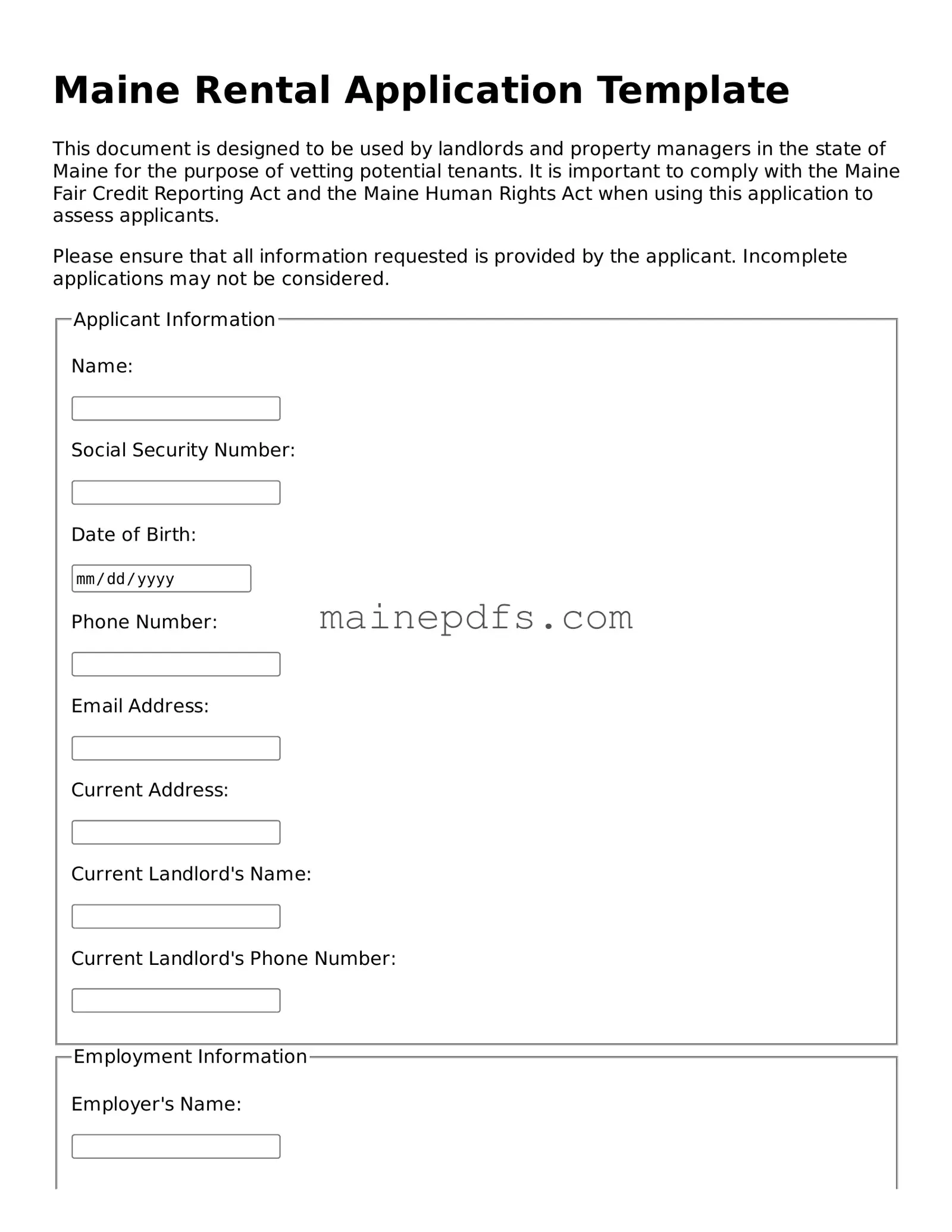What is the Maine Rental Application Form?
The Maine Rental Application Form is a document that potential tenants fill out when applying to rent a property in Maine. This form provides landlords with information necessary to assess whether an applicant would be a reliable and suitable tenant. Typically, it includes sections on rental history, employment, income, references, and consent to perform a background check.
Who needs to fill out a Maine Rental Application Form?
Anyone looking to rent a residential property in Maine should be prepared to fill out a Maine Rental Application Form. Landlords or property managers request this form to collect important information to help them decide on the applicant’s eligibility for tenancy.
When completing a Maine Rental Application Form, you will likely be asked to provide a variety of information, including:
-
Your full legal name and current address
-
Rental history, including previous addresses and landlord contact information
-
Employment history and current income details
-
References, possibly both personal and professional
-
Consent to undergo background and credit checks
Is there a fee to submit a Maine Rental Application Form?
Yes, in many cases, landlords or management companies will charge a fee to cover the costs of processing the application and running credit and background checks. The amount can vary, so it's important to ask about this fee before submitting your application.
Submission methods can vary depending on the landlord or property management company. Some may prefer or require online submissions through their website or a rental listing platform, while others might accept applications via email or in person. It's best to ask for specific submission guidelines.
How long does it take to process a Maine Rental Application?
Processing times can vary widely based on the landlord or property manager’s schedule, the number of applications received, and how quickly references respond. Generally, it can take anywhere from a few days to a couple of weeks for your application to be processed.
What happens after my application is approved?
Once your application is approved, the landlord or property manager will typically contact you to discuss the next steps. This often includes signing a lease agreement, paying a security deposit and the first month’s rent, and coordinating a move-in date.
Can I be denied a rental based on the information in my Maine Rental Application?
Yes, a landlord can deny your application based on the information provided in your application. Common reasons for denial include insufficient income to cover rent, poor rental history, negative references, or adverse findings in background or credit checks. Landlords must comply with fair housing laws and cannot discriminate based on race, color, religion, national origin, sex, familial status, or disability.

